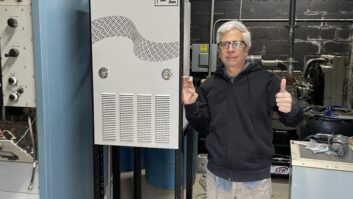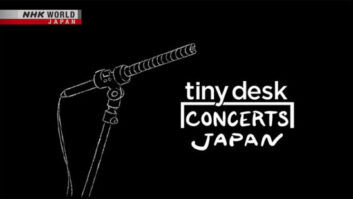
This is one in a series of Radio World interviews with industry tech and regulatory experts, commenting on the FCC’s October actions in support of AM radio stations in the United States.
Mike Riksen is vice president of policy and representation for National Public Radio, responsible for policy development, advocacy and station and community engagement plans. He has been with NPR since 2003.
Radio World: The AM order is out. Overall, what’s your reaction to it?
Riksen: The FCC’s report and order took an incremental approach to revitalizing the AM service, which is understandable given the technical challenges. While some of the changes will provide greater flexibility to AM stations, NPR is disappointed there will not be large-scale significant relief to AM stations through the opening of a new FM translator station auction filing window until 2017 at least.
RW: What’s your take on the changes made to the so-called ratchet rule?
Riksen: NPR supported the FCC’s proposal to eliminate the ratchet rule and is glad the FCC decided to eliminate the rule. The benefits the FCC thought the rule would achieve when it was adopted simply have not been realized.
RW: What do you think of the details of how the translator windows will all work and how stations will apply for each part?
Riksen: As I noted, the FCC has taken an incremental approach to authorizing additional AM station use of FM translators to improve service. In this case, it is driven by the demands of the incentive auction on the FCC’s resources. The approach is certainly better than simply waiting to open a general filing window for AM stations to obtain FM translators.
RW: Do you think the AM order took enough steps to afford NCE FMs an opportunity to obtain new reserved band translator permits?
Riksen: NPR is disappointed that the FCC’s report and order failed to allow NCE FM stations to participate in the future filing window with respect to reserved band FM translators. Since the FCC adopted its current window filing process, there has never been a filing window for reserved band FM translators. Allowing NCE FM stations to apply for reserved band FM translators in a future FM translator filing window otherwise restricted to AM stations would afford NCE FM stations an opportunity to better serve their communities without adversely affecting AM stations.
RW: What future steps would you like the commission to take in terms of reallocating television Channels 5 and 6 to provide additional spectrum to migrate current radio stations?
Riksen: NPR appreciates the FCC’s primary focus on implementing the incentive auction, but the justification for reallocating Channels 5 and 6 to radio is compelling. The demand for FM spectrum is only increasing, a point underscored by the FCC’s efforts to afford additional AM station access to FM translators in this proceeding and by the use of Channel 6 by numerous low-power television stations to offer analog FM radio services, a grossly inefficient use of the Channel 6 spectrum.
RW: Aside from the translator issue, which of the FCC’s other actions in this order do you think will have the most impact?
Riksen: The elimination of the ratchet rule will help AM stations make less costly station improvements and expand nighttime broadcast coverage. The proposal in the Further NPRM to reduce the protection for Class A AM stations is also something NPR is carefully assessing.
RW: Are there technical concerns or potholes that you see in the details of this order, things radio engineers and owners should be aware of and prepared for?
Riksen: AM stations should be aware the FCC only reduced the community coverage requirements for existing licensed AM stations. New AM stations and AM stations changing their communities are subject to the current community coverage requirements. The desire to preserve service to a station’s community of license is understandable and something NPR supports, but, like the ratchet rule, the unintended consequence may be to discourage the offering of new AM service.
RW: Is there anything the FCC didn’t do that you wish it had?
Riksen: While we understand why the FCC deferred the question of reallocating Channels 5 and 6 to radio, the FCC should have clarified that it will assess the future use of the spectrum by radio with an open mind to the need for additional spectrum for FM radio broadcasting.
Related:
AM Order Produces Mixed Reactions












